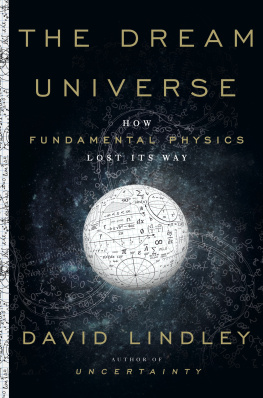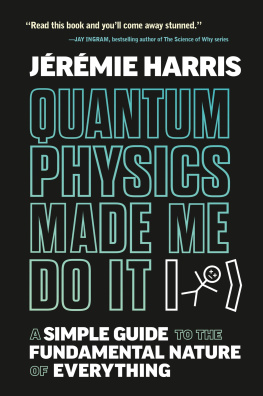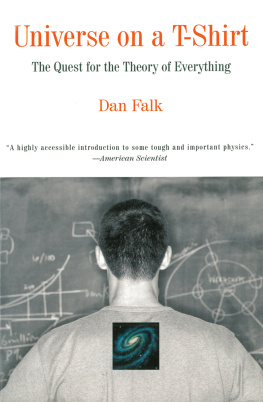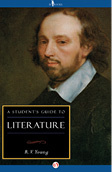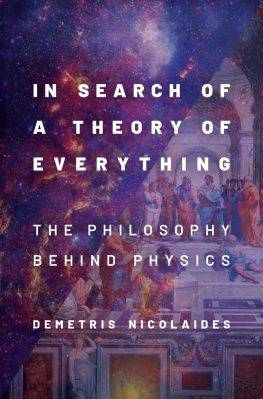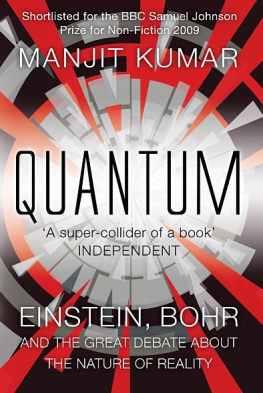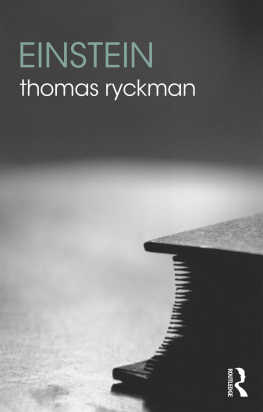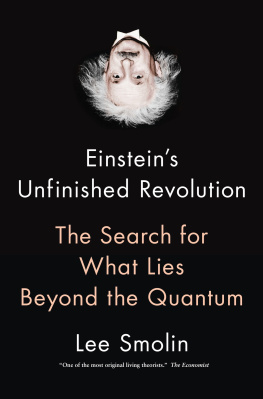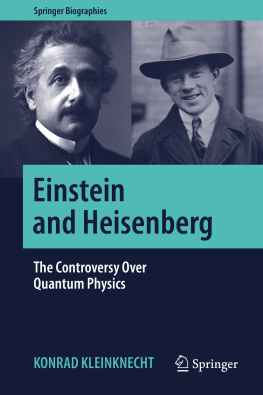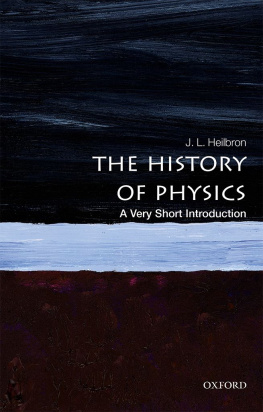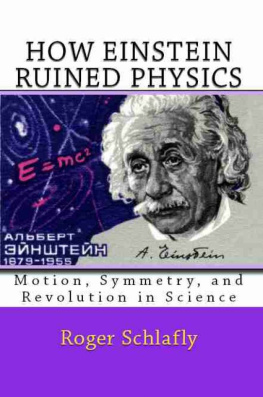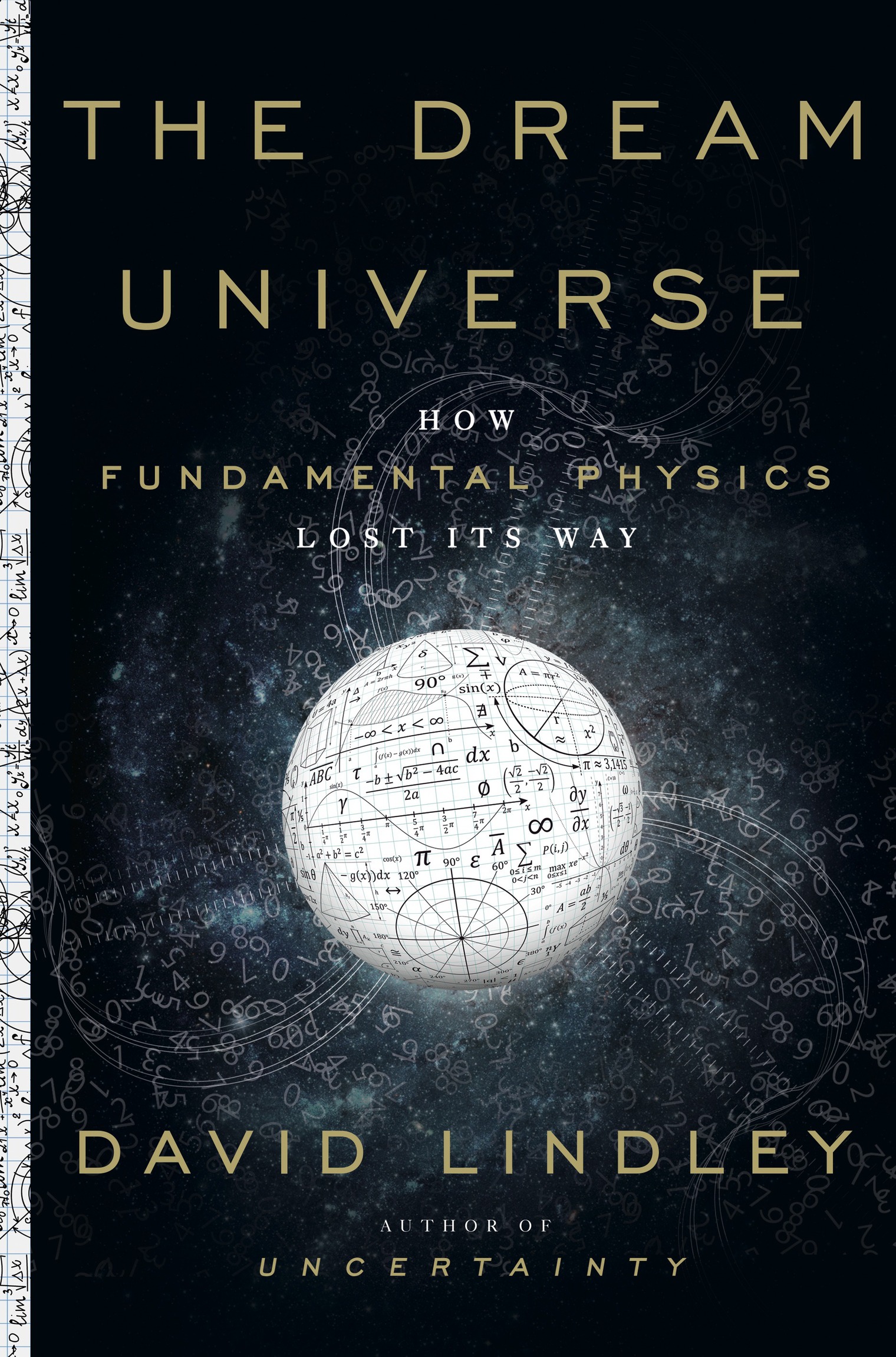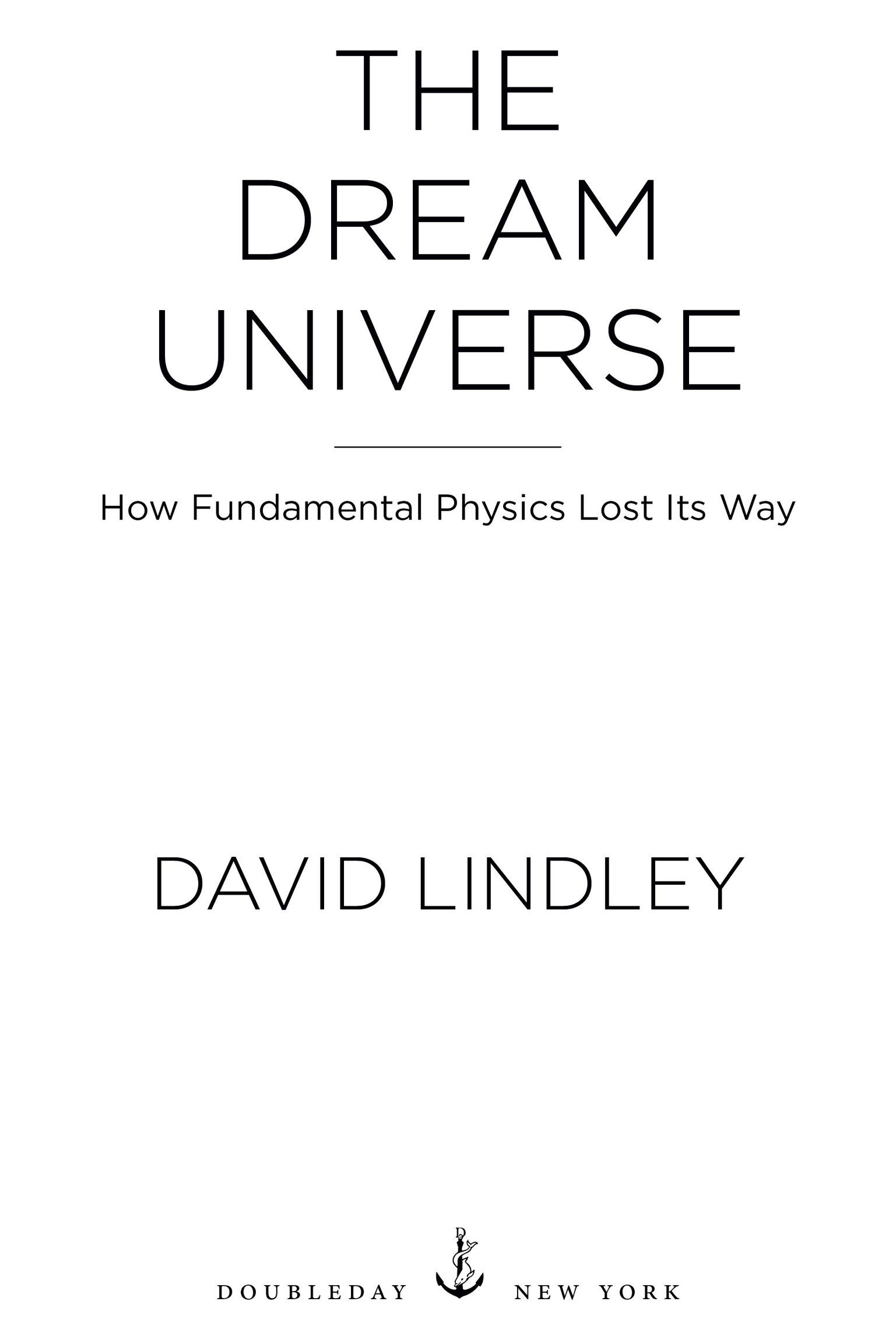ALSO BY DAVID LINDLEY
Uncertainty: Einstein, Heisenberg, Bohr, and the Struggle for the Soul of Science
Degrees Kelvin: A Tale of Genius, Invention, and Tragedy
Boltzmanns Atom: The Great Debate That Launched a Revolution in Physics
The Science of Jurassic Park and The Lost World (with Rob DeSalle)
Where Does the Weirdness Go?: Why Quantum Mechanics Is Strange, but Not as Strange as You Think
The End of Physics: The Myth of a Unified Theory
Copyright 2020 by David Lindley
All rights reserved. Published in the United States by Doubleday, a division of Penguin Random House LLC, New York, and in Canada by Random House of Canada Limited, Toronto.
www.doubleday.com
DOUBLEDAY and the portrayal of an anchor with a dolphin are registered trademarks of Penguin Random House LLC.
Illustration on from World History Archive / Alamy Stock Photo
Drawings on are created by the author
Cover images: sphere by Senoldo; space and Roman numerals by FlashMovie / both Shutterstock
Cover design by Michael J. Windsor
Library of Congress Control Number: 2019919588
Hardcover ISBN9780385543859
Ebook ISBN9780385543866
v5.4
ep
In memory of Gwen Lindley, 19242011
Contents
Preface
Almost thirty years ago I published my first book, The End of Physics. You will no doubt be aware that there is still plenty of physics going on. But my focus in The End of Physics was more specific. I was discussing fundamental physics, the discipline that deals with the nature of matter at its most elementary level, the origin of the forces that hold matter together, and the formation of the universe itself. At the time, in the early 1990s, many scientists were all fired up about the possibility of building a theory of everythinga single, coherent intellectual framework that would capture all of fundamental physics in one neat and satisfying package. The point of my book was to say this ambition was delusional because such a theory could never be adequately tested. No telescopes or particle colliders, I said, would ever be powerful enough to see the finest internal details of the various proposed theories of everything, so that the connection between what the theories said and what we could actually observe and test was at best a lengthy and tenuous chain of inference.
I subtitled my book The Myth of a Unified Theory. By myth I meant that if physicists took a certain theory of everything to be the one true theory, it would not be because they could prove it right. It would be because they had collectively decided that it did a good enough job, that it was the best that could be reasonably achieved. But I was skeptical that even this lesser ambition could be realized: its impossible to imagine the community of theoretical physicists ever coming to the conclusion that they had done everything they could possibly do, that they had run out of questions to ask, and that it was time to close down the store and take up lawn bowls.
In one respect, what I said in The End of Physics proved correct. The very phrase theory of everything is little heard these days, and then mostly in a tone of knowing irony. The theorists who continue to ponder fundamental questions about our universe have largely embraced a very different but equally grandiose ideathat of the multiverse, an overarching conception that says that all kinds of possible universes exist in some parallel fashion, that our universe is one of many (and probably nothing very special to boot), and that what counts as fundamental physics will differ substantially from one universe to the next.
It was, no doubt, a great overreach to imagine that physics could ever account for every last jot and tittle about the construction and contents of our universe, but now the quest appears to have gone to the opposite extreme. According to the multiverse hypothesis, the answer to pretty much any question about how or why our universe looks the way it does is that there is no answer. In our universe, things look like this, but in some other universe they look like that. Thats quite a comedown from the extravagant hopes of just a few decades ago.
And it raises a challenging question: What, exactly, are scholars of fundamental physics today trying to achieve? If their theories have no specific explanatory power when it comes to our universe in particular, then what larger question, if any, are they trying to answer? This new book, The Dream Universe, is my exploration of that question, and it comes to some conclusions that few physicists working on fundamental and cosmological issues will be happy to hear.
When I wrote The End of Physics, I had only recently emerged from my own professional immersion in research, working at Cambridge University and then at Fermilab on the connections between particle physics and cosmology. When I left academic research and decided to write about science rather than practice it, I became fascinated with the history of science. Since that time, I have written a number of books with an overtly historical perspective. My exploration of the scientific past has now come full circle and brought me back to my old subject: the state of modern cutting-edge fundamental physics. Reading and writing about history has taught me something that barely crossed my mind when I was practicing sciencenamely, that the idea of what a good scientific theory ought to look like is not set in stone, like some kind of ancient commandment. It is, instead, a matter that exists in the scientific atmosphere of its time; it is the common sense of its age, the unspoken ideal that scientists take for granted but think little about. And yet it changes profoundly from one era to the next.
Thats why I chose to begin The Dream Universe with the story of Galileo Galilei, who laid the foundations for modern science by demonstrating that an astute combination of observation and reason could reveal how the natural world works. Galileo, as everyone knows, was condemned by the church for his heretical views, but in the first part of this book I dig into the true source of the churchs opposition, which was not primarily theological but rather philosophical, reaching back to the thinking of the ancient Greeks. In doing so, I look at the Greeks contribution to science: they were enamored of reason and logic, certainly, and they greatly esteemed the theorems of geometry, but for the most part they either ignored or positively disdained the sort of knowledge that could be gained by looking closely at the world they lived in. Measured by modern standards, what the Greeks espoused as an understanding of the universe at large was a form of idealistic philosophy very different from how we now conceive of scientific physics and cosmology. Only by breaking the hold of that ancient orthodoxy was Galileo able to think in a recognizably modern way. In particular, he used mathematics in a new waynot as a source of fundamental truths about the world but as a tool to manage the truths that observation and experiment delivered.
I delve into that notion in the second part of the book, which looks at how scientists of the classical eraup to the end of the nineteenth century, more or lessdeployed mathematics with ever greater sophistication but thought of it always as a means of understanding the world, not as an arbiter or provider of fundamental truth.

